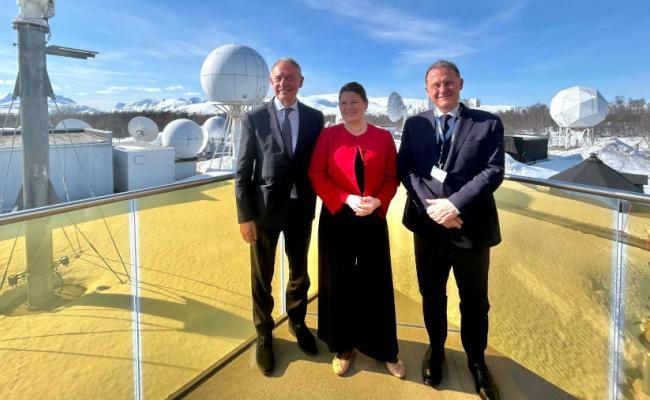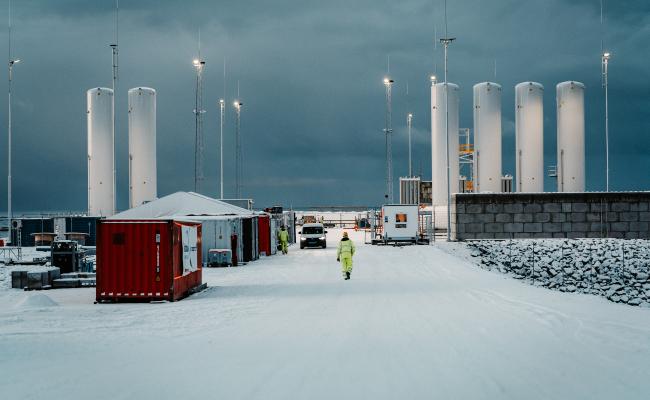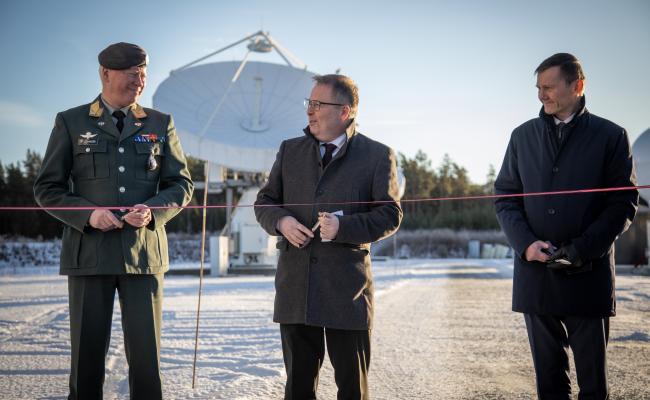Finland Seeks Allied Cooperation on Space-Based Surveillance in the High North

ICEYE owns and operates the world's largest synthetic aperture radar satellite constellation. (Photo: ICEYE)
Finland is building up satellite surveillance capability and wants to join forces with allies to strengthen collective defense, said Minister of Defense Antti Häkkänen at NATO's Arctic Space Forum. Key Finnish and Swedish space actors have already signed a letter of intent on cooperation.
Finland recently hosted NATO's first Arctic Space Forum.
The in Helsinki gathered the defense sector and the commercial space sector to explore how space capabilities can strengthen situational awareness, resilience, and deterrence in the North.
Going forward, Finland aims to develop allied cooperation on space-based surveillance, stated Defense Minister Antti Häkkänen (National Coalition Party).
“We will build a strong and comprehensive surveillance capability that will strengthen NATO’s deterrence and defense in Northern Europe. This will strengthen the security of Finland and of the Alliance,” he said.
This fall, the Finnish Defense Forces entered into an agreement regarding the purchase of three surveillance satellites from the domestic company ICEYE. More specifically, these are satellites equipped with Synthetic Aperture Radar (SAR), providing high-quality photos of the Earth's surface.
The plan now is to create a multinational community of allies using SAR satellites, according to Häkkänen. The idea is that it will promote compatibility, beneficial interactions, and sharing of best practices related to SAR preparedness.
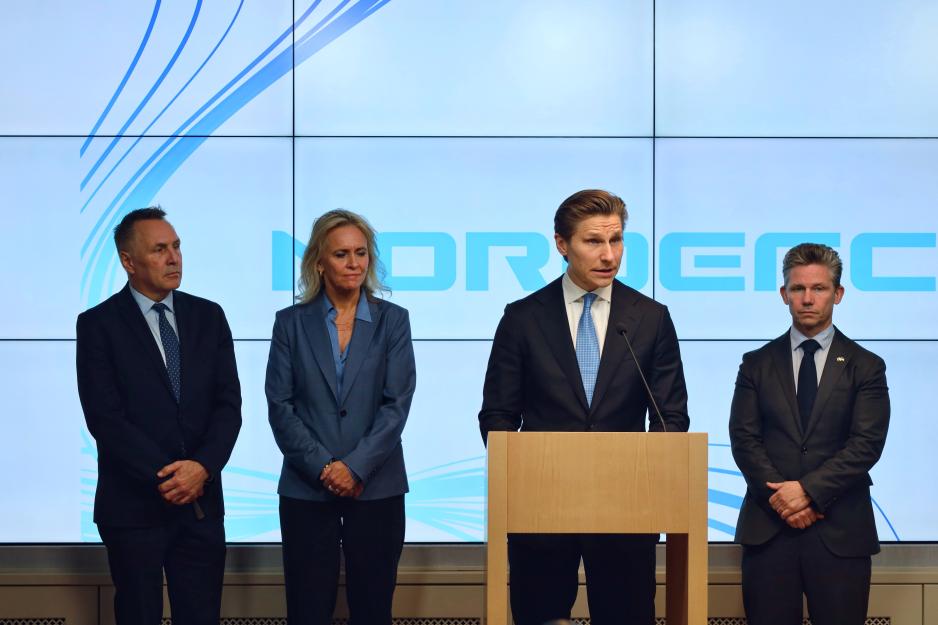
At the same time as NATO's Arctic Space Forum was taking place, Finland also hosted a ministerial meeting in Helsinki within the Nordic defense cooperation (NORDEFCO). Here is the Finnish Defense Minister Antti Häkkänen on the podium, flanked by Sweden's Defense Minister Pål Jonson (to the right), Iceland's Foreign Minister Þorgerður Katrín Gunnarsdóttir, and Norway's Defense Minister Tore O. Sandvik. (Photo: Matias Jämsén/Finland's Ministry of Defense)
Underway
A community of the sort is already underway.
Last week, it was announced that Finnish ICEYE and the state-owned Swedish Space Corporation (SSC) have signed a Letter of Intent (LOI) on cooperation.
The two parties will explore opportunities for expanded cooperation in central space and defense areas.
ICEYE is, by its own words, a global leader within SAR satellite operation, while SSC describes itself as a global provider of advanced space services.
The Swedish Space Corporation has a worldwide network of ground stations and owns the Esrange Space Center outside of Kiruna, Northern Sweden.
Esrange Spaceport, in turn, aims to become a leading provider of satellite launch services from mainland Europe, something that Andøya Spaceport in Northern Norway also strives for.
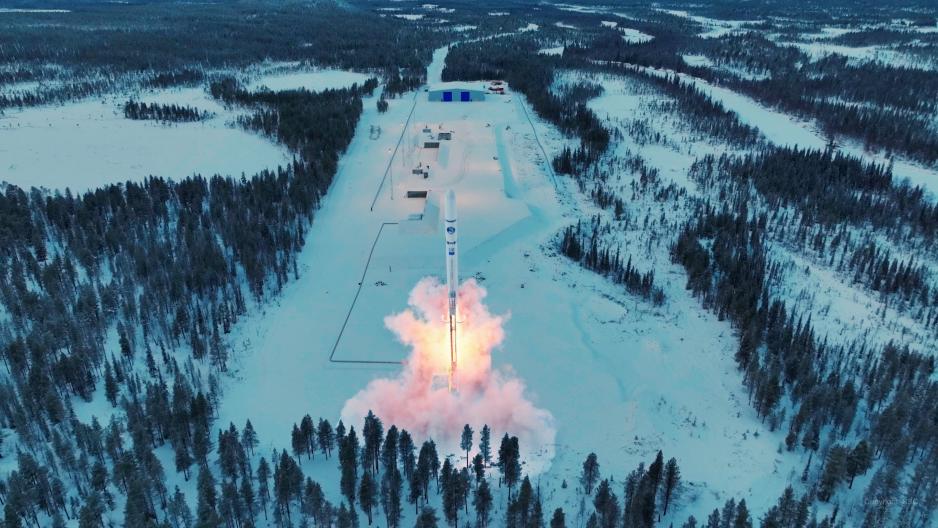
Illustrated image of a satellite launch vehicle at the Esrange Spaceport. (Source: SSC)
Focus on the Arctic and the North-Eastern Flank
The purpose of the agreement, which was signed during NATO's Arctic Space Forum, is to strengthen independent space capabilities for Nordic and allied security, both in the Arctic and along NATO's northeast flank, writes ICEYE.
“The Letter of Intent between SSC and ICEYE aims to develop cooperation based on our complementary strengths, and is in line with and supports an increasing defense cooperation also in the space domain between Sweden and Finland," states Charlotta Sund, President and CEO at SSC.
"Through this LOI, we’re evaluating how to combine ICEYE’s SAR offering and SSC’s global ground network and future access to orbit. The intent is to explore concepts that strengthen Nordic collaboration for security and resilience and enable dependable intelligence, surveillance and reconnaissance (ISR) for NATO and the Nordics," adds Pekka Laurila, CSO and Co-founder of ICEYE.
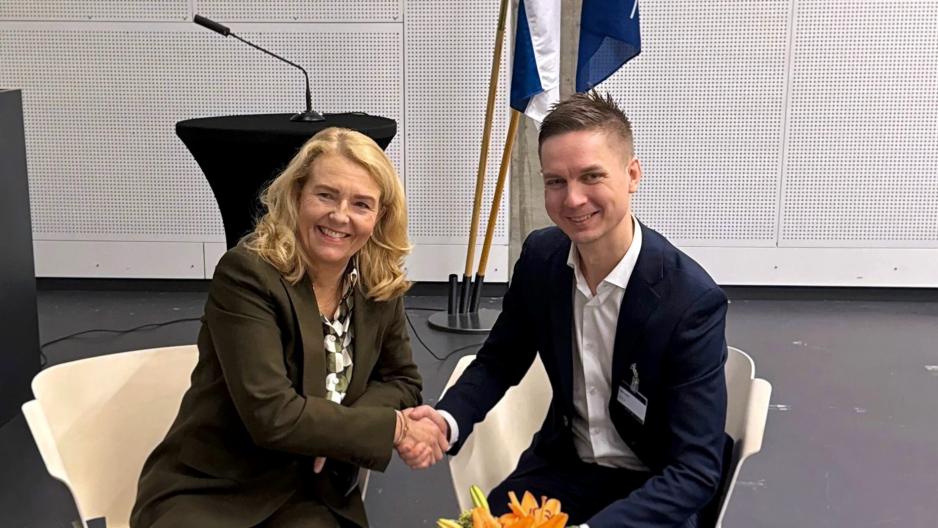
Coming partners: Charlotta Sund, President and CEO at Swedish Space Corporation, and Pekka Laurila, CSO and Co-founder of ICEYE. (Photo: ICEYE)
New trend
In the past, the space domain has largely been dominated by science and military operations framed by great power competition.
Now, space has increasingly become a platform for global business and economic influence, and therefore, a strategic and operational resource that is shaping the power balance.
In addition, the space domain is of great importance for the alliance's collective defense.
This development forms the backdrop for why Finland is now investing in space capabilities, Minister Häkkänen pointed out at the space forum.
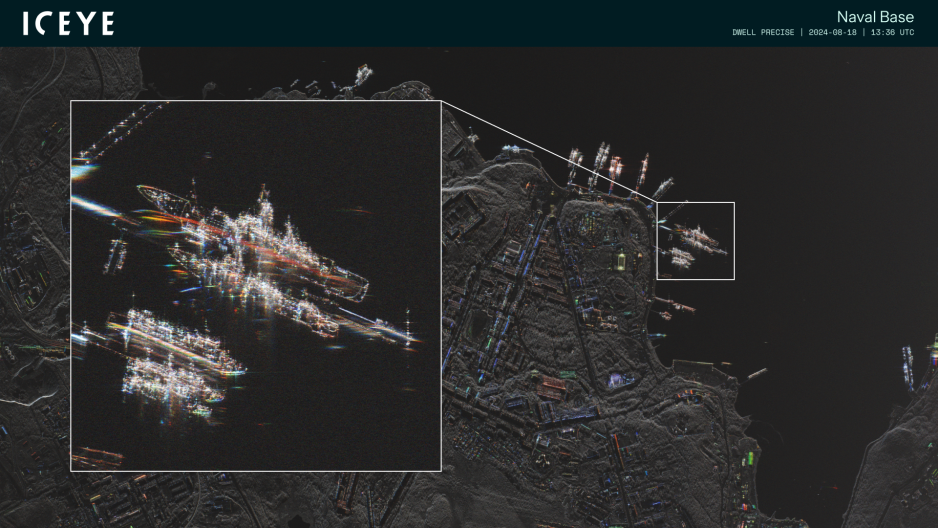
Precision image of an naval base using synthetic aperture radar. (Photo: ICEYE)
More about Finland's satellite procurement
· ICEYE's SAR satellites can photograph objects on the Earth's surface with 25 cm ground resolution, providing highly accurate surveillance data in all weather and lighting conditions.
· In addition, the data is provided in near real-time. This way, the radar satellites can contribute to a good and updated situational awareness.
· The Finnish Defense Forces' procurement of three radar satellites is valued at about EUR 158 million. This also includes options allowing for the satellites' lifetime to be extended and the system to be further developed.
· The procurement will generate about 36 person-years in Finland, and the surveillance data could also be of use to other authorities, according to the Finnish Ministry of Defense.
· As of today, ICEYE has a constellation of 54 SAR satellites in orbit for the use of the company and its customers.
· The Finnish company provides surveillance data for both the public and commercial sectors within defense and intelligence, insurance and finance, maritime surveillance, and response to natural disasters.
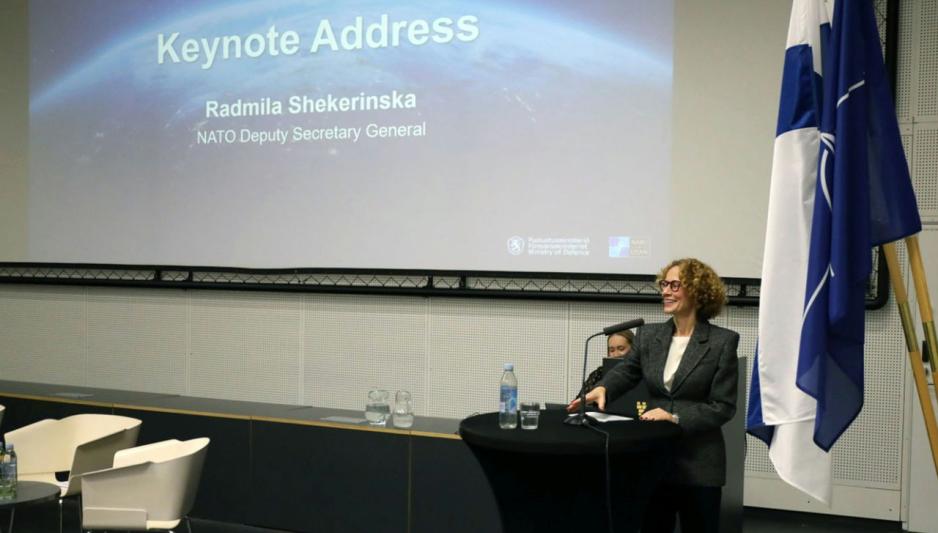
NATO Deputy Secretary General Radmila Šekerinska underlined that space capabilities are crucial for ensuring safety and security in the Arctic at the opening of the alliance's Arctic space Forum. The event gathered ministers, experts from the defense administrations of 25 allied countries and NATO structures, as well as more than 20 companies in the space sector. (Photo: NATO)
High-level forum
During the space forum, Häkkänen also participated in a panel debate on security in Northern Europe.
The other participants were the Deputy Secretary General of NATO, Radmila Šekerinska; Norway's Minister of Defense, Tore O. Sandvik; Denmark's Minister of Defense, Troels Lund Poulsen; and Iceland's Minister of Foreign Affairs, Þorgerður Katrín Gunnarsdóttir.
They talked about the strategic relevance of the Arctic in terms of trade, transport, and communications between North America and Europe.
In addition, the discussion included security challenges in the Arctic region, such as climate change, increasing global competition, and changes in Russia's military presence.
Further on, they explored how space-based solutions, including commercial ones, can help enhance NATO’s surveillance capacity and its broader deterrence and defense.
The visiting ministers were primarily in Helsinki to attend the aforementioned NORDEFCO meeting, which was also attended by the Nordic Chiefs of Defense and Šekerinska.



